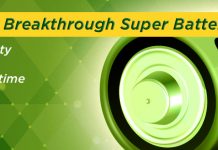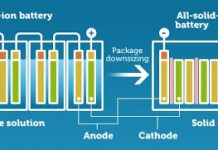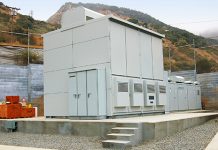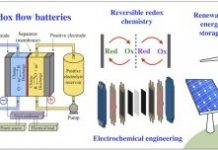Debra Fiakas

Alliance photo via BigStock
|
Exide Technologies (XIDE: Nasdaq) is one of the largest transportation and industrial battery suppliers in the U.S., vying for market share with Johnson Controls (JCI: NYSE) and EnerSys (ENS: NYSE) among others. Batteries are a competitive business, even as the automotive sector has attempted a recovery from the 2008 free fall in new car sales. Electric vehicle and renewable energy storage applications have helped expand addressable market. However, for a conventional battery producer capturing a share of these markets requires new technology.
A long-time lead-acid battery supplier, Exide makes a show of its research and development effort, but fails to disclose the amount the company spends on R&D. It could be hidden away in Selling, General and Administrative expenses. Exide reports SG&A near 14% of sales over the past four years. If this expense category includes the company’s R&D effort, it is less than impressive.
Of course, internal development programs are not the only way to build a technology base. In late 2008, Exide acquired Mountain Power, a privately-held developmental-stage company that had a proprietary battery management system with additional monitoring features for proven lithium-ion cell technologies. This appears to be Exide’s first foray into lithium technologies and represented a big leap from the company’s lead-acid history.
Then in early 2009, Exide entered into a technology development agreement with privately held NanoTerra, a developer that claims particular expertise in the design of nano-materials and their application to surfaces and bulk materials. It is not clear whether Exide has deployed NanoTerra’s findings in any of Exide batteries.
In the same year, Exide signed a memorandum of understanding with Axion Power Technologies (AXPW: Nasdaq) for the future purchase of Axion’s PbC batteries and the license of Axion’s lead-carbon electrode technologies. Exide never got around to formalizing the relationship or ordering Axion batteries, but a few months after the MOU was signed the affiliation made good reading in Exide’s application for Recovery Act funds from the Department of Energy. The application named Axion as a partner and promised to increase manufacturing capacity at its Columbus and Bristol facilities where Exide was to produce Absorbed Glass Mat (AGM) batteries “using lead-carbon electrodes for micro-hybrid applications.” In recent discussions Exide has begun referring to the ARRA-funded capacity augmentation in terms of batteries “with or without” lead-carbon technologies – enhancements that Axion was ostensibly to bring to the party.
Exide was busy making friends in 2009. The company also entered into a cooperative research and development agreement with Savannah River National Laboratory and the University of Idaho. The troika was set up to study the benefits of hollow glass microspheres in lead-acid batteries. Researchers in Idaho have found that among other benefits the use of these glass microspheres could reduce battery weight, a big plus for the large battery systems needed for electric vehicles and renewable energy storage solutions.
More recently Exide has entered into a “strategic alliance” with Maxwell Technologies (MXWL: Nasdaq). The two have pledged to work together on integrating Maxwell’s ultra-capacitor technology with Exide’s batteries for use in storage applications. It seems like a tall order as the two technologies could not be more diverse. Ultra-capacitors store energy in an electric field while batteries produce and store energy by means of a chemical reaction. Like the Axion relationship, there is nothing binding on either Maxwell or Exide. The press release is probably longer than the ‘alliance’ paperwork, so if any new technologies arise from the collaboration, the two will have to work out who owns what.
Exide is not the first manufacturer to rely on third-party relationships for research and development. However, if Johnson Controls is successful in acquiring the automotive assets of bankrupt A123 Systems’ (AONEQ: OTC/BB), Exide may be under more competitive pressure. The deal would involve the transfer of supporting technologies and could give Johnson Controls an edge over Exide in the transportation market that appears to be centering on lithium ion technologies. That means Exide will need to do more than bootstrap its reputation as an innovator with press releases and MOUs.
Debra Fiakas is the Managing Director of Crystal Equity Research, an alternative research resource on small capitalization companies in selected industries.
Neither the author of the Small Cap Strategist web log, Crystal Equity Research nor its affiliates have a beneficial interest in the companies mentioned herein.








